Asthma Cooperative Agreement Partner Profile – Minnesota
The Minnesota Department of Health Asthma Program has been part of CDC’s National Asthma Control Program since 1999. They work alongside partners to improve the quality of asthma care, improve asthma management in schools, and foster policies to help reduce exposure to asthma triggers in outdoor, indoor, and workplace environments.
Strategies in Action
- Minnesota’s Asthma Program (the Program) developed its Asthma Home-Based Services (AHBS) model using public health nurses to deliver at-home asthma self-management education (AS-ME), conduct home assessments for asthma triggers, and provide referrals to other services, such as quitting commercial tobacco. While the Program prefers that local public health (LPH) agencies implement both the environmental and educational components of AHBS, the Program encourages and supports LPH agencies that are only able to implement one component since the relationships built may be foundational to development of a full AHBS program in the future. As of 2022, the Program provides technical assistance to seven city and county public health agencies. They provide full AHBS programs and mentors two LPHs that are building AHBS programs. The Program’s clinical advisor promotes AHBS during clinic and school visits in efforts to expand AHBS across the state and to build referral sources. The Program continues to identify partners who can provide resources for health improvement and to supplement services to AHBS clients. Results of home-visiting projects with the AHBS model have resulted in reduced rates of hospitalizations and ED visits, fewer missed school days, and cost savings to health plans.
- The Program launched its online asthma training course “Athletes and Asthma: The Community Coach’s Role” in August of 2019. The 35-minute interactive online course provides information and resources for the community coach using animation, video, and interactive scenarios. The Program works to promote the training via partnerships with sport organizations, clubs, and parks and recreation programs. In 2021, the Program formed a collaboration with the Minnesota Amateur Sports Commission (MASC) and the National Sports Center (NSC). NSC mandates asthma training for all staff members and contractors who work on the campus. MASC has added the training link (https://athetesandasthma.mn.gov) to its website and promotes the training to their statewide network of amateur sports organizations.
- The Minnesota Department of Health released Asthma in Minnesota: A Strategic Framework 2021–2022, in January of 2022. The purpose of the framework is to improve the health care and quality of life for over 428,370 Minnesotans who have asthma. The 10-year framework focuses on closing health equity gaps related to asthma and reducing the burden of uncontrolled asthma, such as hospitalizations, emergency departments visits, missed days of work or school, and preventable healthcare costs.

Asthma by the numbers:
369,238 Adults with asthma
53,315 Children with asthma
In 2020, a total of 369,238 Minnesota adults (8.5% of the adult population) and 53,315 Minnesota children ages 0–17 (4.2%) had asthma.
17,023 ER visits
1,754 Hospitalizations
In 2019, there were 17,023 emergency department (ED) visits and 1,754 hospitalizations due to asthma in Minnesota.
National Asthma Control Program: EXHALE
E
on asthma self-management
X
smoking and exposure to secondhand smoke
H
visits for trigger reduction and asthma self-management education
A
of guidelines-based medical management
L
and coordination of care across settings
E
policies or best practices to reduce asthma triggers from indoor, outdoor, or occupational sources
CDC’s National Asthma Control Program (NACP) and its partners help people with asthma achieve better health and improved quality of life. NACP developed EXHALE, a set of six public health strategies that each contribute to better asthma control.
Each EXHALE strategy has been proven to reduce asthma related hospitalizations, emergency department visits, and healthcare costs. Using the EXHALE strategies together in a community can have the greatest impact.


